Principle-based courses are challenging because the points of evaluation are not always obvious. They usually call for targeted scenarios that illustrate how to assess a situation and then make a decision based on observations. A single scenario can sometimes fulfil multiple learning objectives. The instructional designer has to keep the client focused on key messages so that the learner doesn’t get overloaded.
What to Know Before Building an E-Learning Course
December 11th, 2018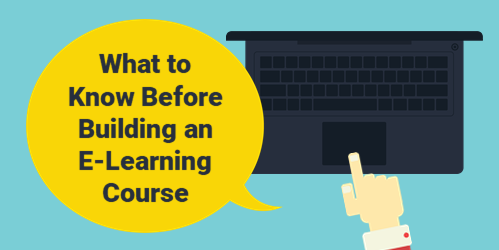
Before committing resources to your course, it’s important to understand what type of e-learning course you need to build.
E-learning courses tend to be one of two types: information or performance
- Information-based courses are more like explainer courses where the main objective is to share information or offer a linear explanation of the content. This is common for new initiatives where awareness is a key objective to the course. It’s also typical of a lot of compliance training that are less focused on changing behavior and more on awareness of key policies. I tend to think of these less as courses, and more like awareness marketing content.
- Performance-based courses focus on changing performance or some sort of behavior. They’re tied to performance metrics where you can measure before and after changes.
Types of E-learning Courses
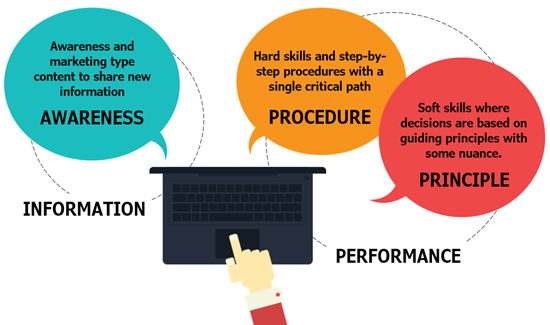
Within that context, there are generally three types of courses:
- Information. These courses share information with no performance expectations or changes in behavior. They’re more about awareness such as a company’s policy around certain issues.
Performance-based courses tend to be of two types:
- Procedural. These courses are performance-based as they have a required sequence of events or procedures that need to be followed. This is typical of a lot of machine or software training. There’s not a lot of nuance to the training. There are ten steps and everyone follows them exactly the same.
- Principle. These courses are built around decisions that are more soft-skilled in nature. A procedural course has a clear critical path of steps. However, principle-based training is focused on general guidance or principles that are not always black and white. They’re nuanced where the application to each situation may be a bit unique.
Once you understand what type of course you need to build, you’ll be able to commit the appropriate resources. Information/awareness courses require fewer resources. Often, you’re just re-purposing existing content. Which begs the question why you’re building a course (but that’s a different blog post). Performance courses require more focus on measurable objectives, metrics to determine success, and a nuanced understanding of the content and real-world decisions the learner needs to make.
When I meet with clients, I always try to determine what type of “course” they want to build. I focus on the objectives and try to make sure they’re actionable. Information-based courses don’t always need to be built and performance-based courses usually take longer to build and require more resources. By determining which type of course to build you are better able to allocate and manage your resources.
Events
- Everyday. Check out the weekly training webinars to learn more about Rise, Storyline, and instructional design.
Free E-Learning Resources
 |
 |
 |
|
Want to learn more? Check out these articles and free resources in the community. |
Here’s a great job board for e-learning, instructional design, and training jobs |
Participate in the weekly e-learning challenges to sharpen your skills |
 |
 |
 |
|
Get your free PowerPoint templates and free graphics & stock images. |
Lots of cool e-learning examples to check out and find inspiration. |
Getting Started? This e-learning 101 series and the free e-books will help. |
2 responses to “What to Know Before Building an E-Learning Course”
Hi,
Thanks for sharing the great idea about elearning course. Many people taking part in on the job training or an educational course, e-Learning is the easiest way to fit learning around a busy schedule.
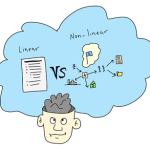

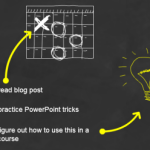



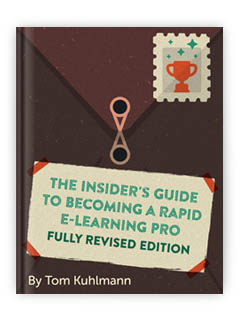


0
comments